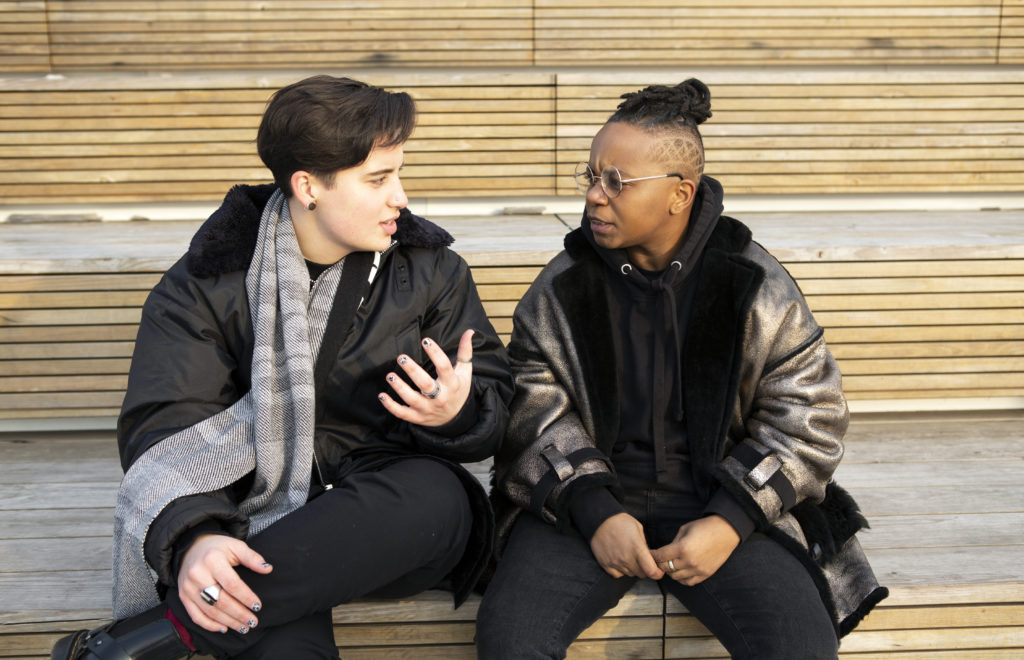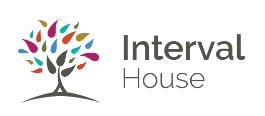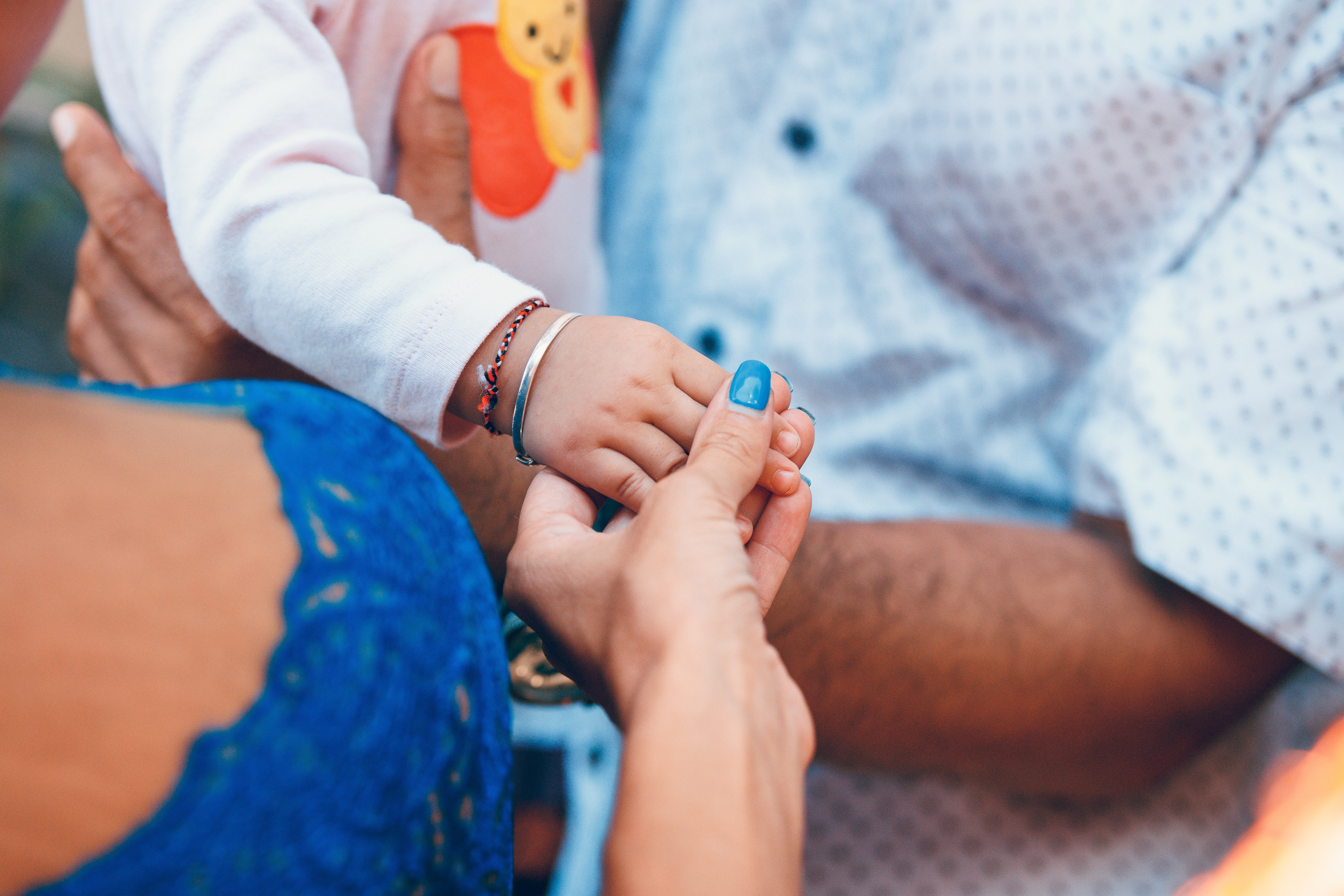Often when people picture domestic abuse within a romantic relationship, they picture a man abusing a woman. And while it is most common for abuse to take shape as a man abusing a woman, it is also true that abuse exists in all types of relationships and abusers may be any gender or agender and may have any sexual orientation. Intimate partner violence (IPV) can affect anyone. There are, however, important differences in how we understand abuse in the LGBTQ+ community and problems with how we currently address it.
The fact is, queer, trans and non-binary people are at a higher risk of experiencing sexual and domestic violence than their heterosexual, cisgender counterparts. Unfortunately, they are also less likely to report such experiences and therefore less likely to access programs and services to help them heal. LGBTQ+ individuals are also at risk of a unique form of abuse where abusers may use victims’ sexuality and/or gender identity against them in order to isolate them, break down their self-confidence, and trap them in the relationship. This is something that an abuser in a heterosexual relationship could not use to coerce their partner. At Interval House, we are proud to be LGBTQ+ inclusive, and understand the need to talk more openly about the domestic abuse and sexual violence that exists in the community.

It’s Real and It’s a Problem
Studies have found that queer-identifying individuals and trans and non-binary folks have a high risk of experiencing sexual violence and intimate partner abuse in their lifetime. The 2015 U.S. Transgender Survey of 27,715 Black respondents found that 53% of Black trans & non-binary individuals have experienced sexual violence and 56% have experienced domestic violence. Almost 50% of gay and lesbian individuals reported sexual and/or psychological abuse by a partner. Over 50% of bisexual people have experienced sexual violence and/or intimate partner violence. In fact, UK studies have found that bisexual women are five times more likely to be abused by a partner than heterosexual women. “Trans-feminine individuals, particularly those of colour, are additionally much more likely than other groups to be murdered by their partners.”
There are also barriers preventing LGBTQ+ people from disclosing abuse or seeking help. For example, if someone is not out as LGBTQ+ with their family, they may not be able to disclose to their family that they are in a relationship at all, let alone an abusive one. On the flip side, if coming out put strain on their familial relations, they may no longer have support within their family to be able to talk about abuse. An abuser can take advantage of past trauma to control their victim. Another barrier to seeking help is the number of myths surrounding intimate partner violence in LGBTQ+ relationships. These myths can discourage survivors from accepting that they are experiencing abuse in the first place and they serve to devalue and discredit survivors who are trying to escape abuse.
Myths about Abuse in LGBTQ+ relationships
The myths about abuse in queer relationships intersect to form the completely untrue view that abuse is strictly a heterosexual problem. The concept that abuse in queer relationships is not at as serious as heterosexual abuse can stem from the false perception that abusers are necessarily physically stronger than their victims, or that abuse is just physical violence. In reality, abuse isn’t about physical strength or the ability to physically dominate, but rather the ability to gain control and power over another person by any means. Of course this can be achieved with the use of physical violence, but other tactics can be employed such as verbal abuse, financial coercion, psychological violence, and more. Abuse of any form is damaging and traumatic, especially when it is carried out by an intimate partner.
Another myth that impacts how society perceives IPV in queer relationships is that women cannot perpetrate violence. In some heterosexual relationships, women are the abusers and this can be the case in some queer relationships as well.
People who identity as bisexual are at higher risk of sexual and domestic violence than people with any other sexuality. The stereotype that bisexuals are hyper-sexual and the fetishization of bisexual women by cisgender, straight men contribute to making this population particularly vulnerable.
In order to address the issue of IPV in the LGBTQ+ community and support queer and non-binary survivors, we have to continuously address the myths that exist and break down the stereotypes.

Trans-exclusion and Barriers to Support
So, now we know that abuse in queer relationships exists, and we know that it is widespread. The next obstacle that these survivors face is accessing social support and services. The myths and stereotypes discussed above can deter LGBTQ+ individuals from disclosing abuse or seeking help. Historically, support services and domestic violence shelters were opened to support cisgender women escaping abuse from their husbands. Today, many resource centres and services continue to be trans-exclusive and restrict access for queer survivors. Even resources that were developed to serve the LGBTQ+ community can marginalize the most vulnerable people that are at the highest risk of experiencing violence. Trans women are the population most likely to be killed by partners and yet they are being refused access to many emergency women’s shelters because of their gender identity. Bisexual women are more at risk of experiencing sexual violence and intimate partner violence than straight women and lesbians, but they are often forced to access services targeted at either straight or lesbian/gay people. The lack of understanding about bisexual and transgender issues and the discrimination against these people within the LGBTQ+ community is holding survivors back from seeking help.
Interval House is Proud to be LGBTQ+ Inclusive
There is a huge need for services to support queer survivors of IPV. We are proud to have been an LGBTQ+ inclusive organization since we first opened our doors in 1973. Our mandate is to offer emergency shelter, counselling, and support to women-identifying survivors of intimate partner violence, along with their children. Our programming is specialized to address the needs of women survivors and we recognize that identifying as a woman and benefiting from our programs has nothing to do with one’s biologically assigned sex or sexual orientation. Anyone can experience abuse and trauma from a partner. And it is the most marginalized women that need places like Interval House the most in order to break the cycle of abuse and rebuild their lives.


